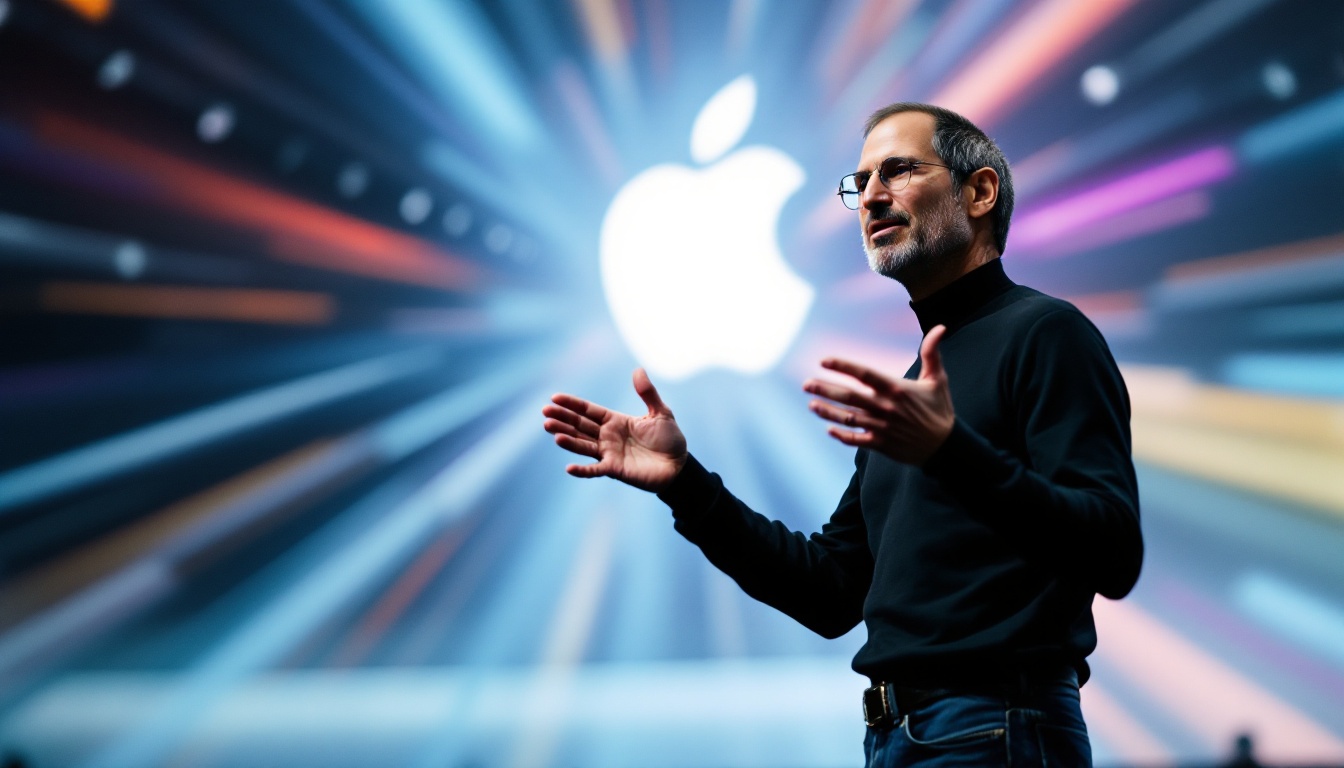Curiosity: The Skill That Built Apple and Transformed Steve Jobs

Steve Jobs, the visionary co-founder of Apple, was known for his incredible drive, creativity, and innovation.
But what was the secret behind his genius?
According to many who knew him, it was his insatiable curiosity. From a young age, Jobs had an innate desire to understand how things worked, and this curiosity would go on to shape his life, his career, and ultimately, the world.
Stevs Jobs and Curiosity
As a child, Steve Jobs was fascinated by electronics. He spent countless hours in his garage, taking apart radios and other gadgets to see how they functioned.
This hands-on experience taught him valuable lessons about design, engineering, and problem-solving.
It also ignited a lifelong passion for technology and innovation.
Jobs' curiosity was not limited to electronics, however.
He was interested in a wide range of subjects, from art and music to philosophy and spirituality.
He attended Reed College for a brief period, where he audited classes on calligraphy and Eastern religions.
These diverse interests would later influence the design and user experience of Apple products.
How Apple Was Born
In 1976, Jobs and his friend Steve Wozniak founded Apple Computer in Jobs' garage.
They had a simple goal: to create a personal computer that was easy to use and accessible to everyone.
This vision was driven by Jobs' curiosity about how technology could be used to empower individuals and change the world.
Jobs' curiosity also led him to seek out new ideas and collaborations.
He was not afraid to ask questions, challenge assumptions, or learn from others.
This open-minded approach helped Apple stay ahead of the curve and create products that were truly revolutionary.
The Power of Curiosity in Innovation
Throughout his tenure at Apple, Jobs' curiosity remained a driving force behind the company's success.
He was constantly exploring new technologies, design concepts, and business models.
He encouraged his team to think differently, take risks, and push the boundaries of what was possible.
One of Jobs' most famous quotes captures the essence of his curious mindset:
"Innovation distinguishes between a leader and a follower."
For Jobs, innovation was not just about creating new products; it was about solving problems and making people's lives better.
He believed that the key to innovation was asking the right questions and being willing to challenge the status quo.
Another quote that reflects Jobs' approach to curiosity and learning is:
"Stay hungry, stay foolish."
This phrase, which Jobs used in his 2005 Stanford commencement speech, encapsulates the idea that one should never stop learning, growing, and taking risks.
It is a reminder that curiosity and a willingness to embrace the unknown are essential for personal and professional growth.
Did Steve Jobs Have ADHD?
While Jobs' curiosity was undoubtedly a gift, it may have also been a manifestation of a deeper struggle.
Many have speculated that Jobs had Attention Deficit Hyperactivity Disorder (ADHD), a condition characterized by impulsivity, hyperactivity, and difficulty focusing.
Some of Jobs' behaviors, such as his intense focus on certain subjects and his tendency to be easily distracted by new ideas, are consistent with ADHD.
He was known for his mercurial temperament, his ability to hyperfocus on projects, and his difficulty with interpersonal relationships.
However, it is important to note that ADHD is a complex disorder that manifests differently in each individual.
While Jobs may have exhibited some ADHD-like traits, it is impossible to know for certain whether he had the condition.
Regardless of whether Jobs had ADHD, his story highlights the potential advantages and challenges of having a curious, restless mind.
On one hand, curiosity can drive innovation, creativity, and discovery.
On the other hand, it can also lead to impulsivity, distraction, and difficulty with follow-through.
The Legacy of Curiosity: Jobs' Impact on Technology and Beyond
Steve Jobs' curiosity had a profound impact not only on Apple but on the entire technology industry.
His vision and leadership transformed personal computing, mobile devices, digital media, and more.
He showed that by staying curious and thinking differently, one could create products that change the world.
Jobs' legacy also extends beyond technology.
His story has inspired countless entrepreneurs, designers, and innovators to follow their passions and pursue their dreams.
He demonstrated that curiosity, creativity, and perseverance can overcome even the most daunting challenges.
As Jobs himself said:
"The people who are crazy enough to think they can change the world are the ones who do."
This quote is a testament to the power of curiosity and the importance of believing in oneself.
It is a reminder that the most transformative ideas often come from those who are willing to think differently and take risks.
What Can We Learn from Steve Jobs About Curiosity?
So, what can we learn from Steve Jobs about cultivating curiosity in our own lives and careers? Here are a few key lessons:
-
Never stop learning: Jobs was a lifelong learner who was always seeking out new ideas and experiences. He showed that curiosity is not just a trait but a habit that can be developed and nurtured over time.
-
Embrace diverse interests: Jobs' curiosity was not limited to technology; he was interested in a wide range of subjects, from art and design to spirituality and philosophy. By embracing diverse interests, we can broaden our perspectives and find new sources of inspiration.
-
Ask questions and challenge assumptions: Jobs was known for his ability to ask tough questions and challenge the status quo. By cultivating a questioning mindset, we can uncover new insights and opportunities for innovation.
-
Take risks and learn from failure: Jobs was not afraid to take risks and experiment with new ideas. He understood that failure is a natural part of the learning process and that the most valuable lessons often come from our mistakes.
-
Stay hungry, stay foolish: Finally, Jobs' famous quote reminds us to stay curious, open-minded, and willing to take risks. By embracing a sense of wonder and possibility, we can unlock our full potential and make a positive impact on the world.
Conclusion
Steve Jobs' curiosity was a defining trait that shaped his life, his work, and his legacy.
From his early days tinkering in the garage to his visionary leadership at Apple, Jobs showed that curiosity is a powerful force for innovation and change.
While Jobs' story also highlights the potential challenges of having a restless, curious mind, it ultimately demonstrates the transformative potential of following one's passions and pursuing new ideas.
As we navigate our own lives and careers, we can draw inspiration from Jobs' example and cultivate our own sense of curiosity.
By staying open-minded, asking questions, and taking risks, we can unlock new opportunities for growth, creativity, and impact.
In the words of Jobs himself:
"Have the courage to follow your heart and intuition. They somehow already know what you truly want to become."
May we all have the courage to stay curious and pursue our dreams, just as Steve Jobs did.
Ilias is a SEO entrepreneur and marketing agency owner at MagicSpace SEO, helping small businesses grow with SEO. With a decade of experience as a CTO and marketer, he offers SEO consulting and SEO services to clients worldwide.
